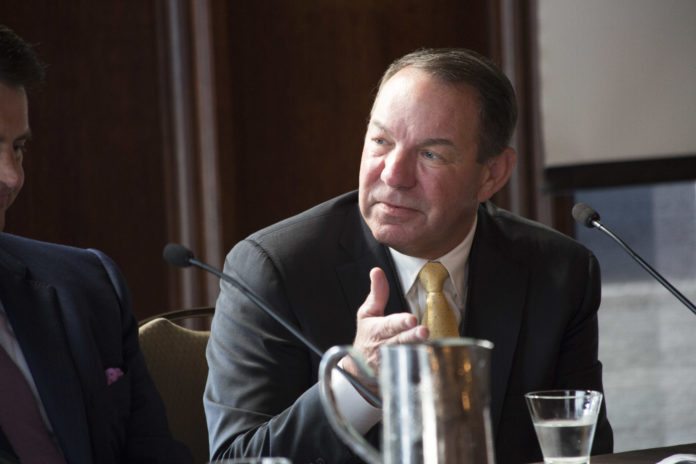
LHC Group’s Keith Myers: To Fix the Medicare Advantage Plan, Cut Out the Middle Man
The difficulties in relationships between Medicare Advantage (MA) plans and the home health care industry have only taken a temporary backseat due to the U.S. Centers for Medicare & Medicaid Services (CMS) proposed rule for the sector.
But nonetheless, it’s still something most providers are willing to – and wanting to – talk about.
And LHC Group Inc. CEO Keith Myers added a new and revealing layer to the conversation on Monday at the National Association for Home Care & Hospice’s (NAHC) Financial Management Conference in Las Vegas.
“I think we’ve done a a lot more with managed care [because of our JVs with hospitals] and I have really good relationships with executives,” Myers said. “But I think our biggest problem are the conveners in the middle of all of this.”
The Lafayette, Louisiana-based LHC Group delivers home health, hospice and home- and community-based services and facility-based care across 37 states and the District of Columbia. UnitedHealth Group (NYSE: UNH) announced it was planning to acquire the company in March, though the deal is still pending.
MA plans tend to pay far less for home health services when compared to fee-for-service Medicare. This is another reason the proposed rule – and its potential cuts – have been met with so much panic from the industry.
Whereas other sectors don’t rely on fee-for-service Medicare as much – like hospitals – allowing them to take proposed cuts and roll with them, home health care does not have two other stable legs of its proverbial stool.
For instance, MA plans sometimes pay up to 40%-60% less than fee-for-service Medicare. At the same time, Medicaid is not a great or steady payer source for home health providers. Therefore, without a sturdy fee-for-service environment, the whole chair falls over.
Home health providers have offered a bevy of potential solutions over the last two years to the MA issue, including refusing MA cases collectively to calling for more government oversight. But Myers suggested cutting out that middle man may help.
Broadly, conveners’ role in post-acute care is to organize services for payers, acting as the middleman between them and the providers they’ve contracted with. They’d certainly argue that they are good for the industry and act as an organizer, lifting up all boats.
But not all providers see it that way. In fact, another top executive told HHCN after that they agreed with Myers’ assessment.
“They’re skimming money off of the top, which is an issue,” they said.
On Myers end, he didn’t seem to be fully taking the blame off of MA plans, either, while still acknowledging he’d like to do away with most of the convener work that LHC Group deals with.
“When plans are not wanting to engage … I believe they may suddenly hand us off to the convener, and they’re sort of there to protect the managed care [side],” Myers said. “And I just don’t think that’s helpful.”